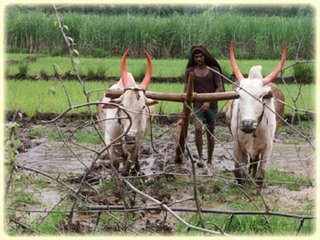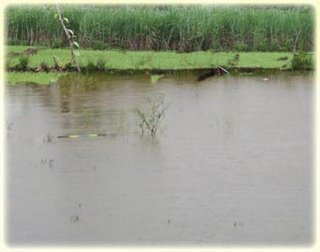India’s pre independence history is in fact, history of kings and their kingdoms. Kolhapur is not different from the others, it has also seen and gone under the various regimes and since the emergence of the Marathas, the place was being ruled by the Bhonsle dynasty. Chhatrapati Shahu Maharaj was not among the male ancestor of this dynasty as he was born as the eldest son of Appasahed Ghatge [Chief of Kagal(Senior)] on 26th June 1874 and was named as Yashwatrao Ghatge. Those were the days around the Holi [an Indian Festival related with colour and usually celebrated in the months of March – April] in the year 1884, when Rani Shrimant Anandibai Raje Saheb decided to adopt him and made him Chhatrapati of the princely state of Kolhapur. Till attaining his maturity in 1894, to look after the state affairs, a council of Regency was appointed by the British government.
Shahu Maharaj belongs to select class of rulers from the various states in India, who by virtue of their work and kind attention towards the day to day life of the people of the Kingdom, become Prince of masses. In the initial period, Shahu Maharaj was impressed by the thought process and Ideology of Satya Shodhak Samaj but in the later part of his life, he influenced by the Aarya Samaj. Under the thought process influence of these two institutions he become instrumental in the, and implemented various social reforms for the kolhapurkars.
Social Reforms:
Shahu Maharaj was a true democrat king, who always thought for the uplifting and making the life more comfortable for the people of his kingdom. However it was the lower cast section of the society, which was benefited more from the social reforms of Shahu Maharaj.
Shahu Maharaj tried to make the facilities for the availability of education to all for which he made provision of hostels for the students especially for the non Brahmin communities. In the year 1920 he established Shahu Vedic School.
As the education, employment should also be available for all, for this he encourage non Brahmin youth to learn and work as the priest.
He was against the Child Marriage tradition and imposed a ban on it in his kingdom. He was of the thought that communities can come closer if they have marriage relations with each other; hence he was supporter of the inter caste marriage. He also encouraged the remarriage of widows.
It is a fact that his reforms were not welcomed by all the sectors of the society, even the famous patriotic leader Lokmanya Bal Gangadhar Tilak was among those who rose vice against his reforms.
This social revolutionary and true democrat knig who not only dare to vision way ahead the time but also to implement his thought for the betterment of the people, died on 6th May 1922.
People of Kolhapur never forget him and due to his welfare activities remember him as the Rajrishi Shahu Maharaj instead of King Shahu. Recently government of India renamed Kolhapur railway station as Chh. Shahu Termins in the honour of this prince of masses.


 The present day condition of the Rain Struck roads of Kolhapur reminds me of a scene from the Hollywood Blockbuster MATRIX. When Neo is taken to see the Oracle & is waiting in the lounge, he sees some children playing. One of them bends a spoon with the gaze of his eyes. When he hands over the spoon to Neo he says "Don't try to bend the spoon its impossible, In fact realise the truth - There is no Spoon" So next time you drive on Kolhapur Roads, Don’t try to avoid the pot holes and drive on the road in fact realise the truth - "There is no Road".
The present day condition of the Rain Struck roads of Kolhapur reminds me of a scene from the Hollywood Blockbuster MATRIX. When Neo is taken to see the Oracle & is waiting in the lounge, he sees some children playing. One of them bends a spoon with the gaze of his eyes. When he hands over the spoon to Neo he says "Don't try to bend the spoon its impossible, In fact realise the truth - There is no Spoon" So next time you drive on Kolhapur Roads, Don’t try to avoid the pot holes and drive on the road in fact realise the truth - "There is no Road". Kolhapur as we all know happens to be one of the highest income generating places but when it comes to Development and Basic Facilities Kolhapur is always given a step motherly treatment. What we will be talking now is not based on pure passion of being a Kolhapurkar but on concrete study of government policies, decisions , declarations and actual works.
Kolhapur as we all know happens to be one of the highest income generating places but when it comes to Development and Basic Facilities Kolhapur is always given a step motherly treatment. What we will be talking now is not based on pure passion of being a Kolhapurkar but on concrete study of government policies, decisions , declarations and actual works.
